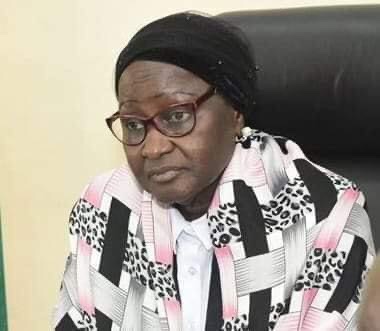From Emmanuel Iyoho
ABUJA
A call has gone to ministries, departments and agencies (MDAs) both in states and at the federal level to fully implement their budgetary allocations, especially on issues as regard to gender-based violence (GBV) currently in the increase across the country.
The chairman, Nigerian Law Reform Commission (NLRC), Professor Jummai Audi, made the call in her opening remarks during a two- day capacity building workshop on budgeting for the reduction of gender Based-violence (GBV held in Abuja recently.
The workshop as organised by Centre for Social Justice (CSJ), a Nigeria based non- governmental organization, in collaboration with European Union, Agents for Citizen -Driven Transformation and British Council featured participants from ministries, agencies as well as media professionals across Nigeria.
Audi, who described the workshop as timely and a welcome development said though budgetary allocation always seemed inadequate, there was need for the MDAs to fully implementtheir available budgetary allocation in their respective organizations most especially on issues that could lead to the reduction in GBV in the country.
While attributing the development to attitude and perception of people entrusted with such responsibilities, the NLRC. boss lamented that it was unfortunate that government entrust people with money that could lead to reduction of such vices, but GBV and other vices were still allow to strive.
According to him, many children have been victims of GBV every day because this issue has not been address properly,hence there was need to use the available resources budgeted for the various MDAs to curb the menace.
She said, ” there is need for capacity building for the law enforcement agents which include: training for the police, Civil Defence, NAPTIP officers etc. Also, for lawyers, health workers, stakeholders and many more.”
Audi added that the incessant cases of gender-based violence could as well be checked by good attitude , perception and fear of God from people entrusted with such responsibilities, even the law enforcement agencies, the Indpendent and Financial Crimes Commission(EFCC)and the Independent Corrupt Practices Commission(ICPC), etc.
Earlier in his opening address, lead director of Centre for Social Justice (CSJ), Eze Onyekpere, while welcoming stakeholders and participants said the aim of the two-day workshop was principally to engage participants and build their capacity effectively on budgeting for the reduction of gender based violence in their various organisations that would reflect in the entire country.
Onyekpere said the workshop would review legal and constitutional obligation of government which shows the revenue and expenditure estimates as well as the priorities of government in any given year.
According to him, Nigerian laws and policies have detail provision which prohibits gender based violence as various plans and strategic frameworks have outlined the oath for eradication of GBV.
He said based on the plan, policy and budget continuum, budget provided the framework for implementation of laws, plans, policies and strategic framework, pointing out that It also provides the resources necessary for their implementation.
Onyekpere, who is also the facilitator of the workshop further identified the objectives of budgeting for GBV to include: identifying possible areas of intervention and effective responsibility to GBV through resources provided in the budget, ensuring enforcement management of GBV related laws and policies and identifying the causes of GBV and provide apotopria response measures for mitigation.
Others according to the lead director included straightening the capacity of relevant institutions for prevention, investigation and prosecution of gender based violence related offences and the establishing as we as maintaining safe spaces and shelter for GBV survivors and provide programmes for the elimination action if GBV and promote the management and response to gender based violence.
Participants were drawn from the Ministries, Departments and Agencies (MDAs) which included senior government officials, the Police. Civil Defence, National Agency for Prohibition of Traffic in Person and Other Related Matters (NAPTIP) , law officers, media professionals among others.





Discussion about this post